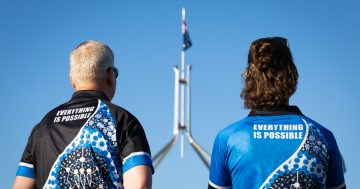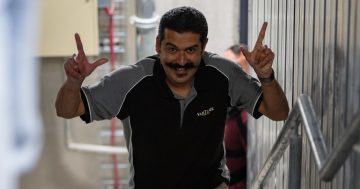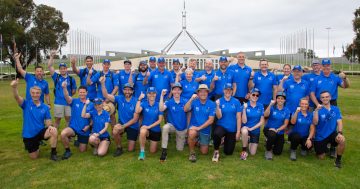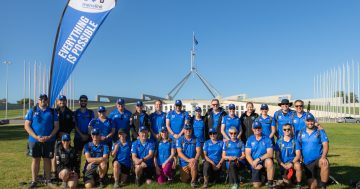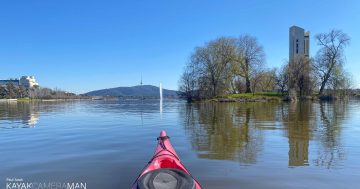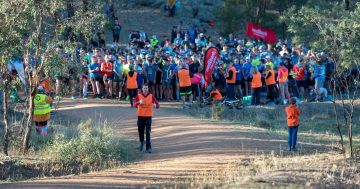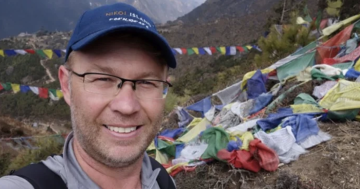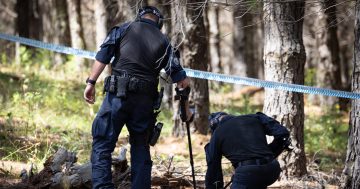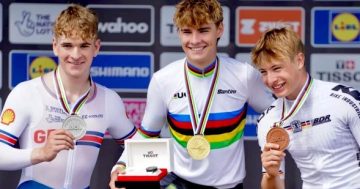
Ben Farinazzo won two gold medals at the 2018 Invictus Games. Photo: benfarinazzo.com.
Ben Farinazzo’s story revolves around recognising when you’re pushing yourself too far, and accepting we’re all human and vulnerable.
It might seem like an odd thing to say for a soldier and gold medal athlete, professions where the mantra centres around consistently trying to push your body beyond its physical limit.
But things changed when post-traumatic stress disorder (PTSD) left Ben in the fetal position in the shower, screaming out to his wife to take him to hospital, more than a decade after serving in East Timor and leaving the military.
“I went catatonic – I could not speak and I completely shut down,” he says. “I was not fully aware of what was going on with me.
“I had always been pushing, pushing, pushing, and eventually it caught up with me and I needed to work out a new way of approaching life and understanding myself better.”
The world was suddenly overwhelming and too much to process as Ben began ‘drip feeding’ his way back to life. It was one step forward, two steps back for such a long time.
“Every time I thought I was well enough to leave the hospital, I would come out into the sun and would only be able to hold my gaze for a few minutes and would have to go back into hospital again,” he says.
“Part of the recovery was learning to just appreciate my humanity and the vulnerability of being human – that you can push yourself to breaking point.”
Then, in a cruel twist, his greatest struggle was born from his recovery efforts following more than a year in hospital for his mental health. While bike riding in the hills behind Jerrabomberra on Australia Day in 2015, Ben crashed and broke his neck and back in five places.

Ben Farinazzo spent years piecing his physical and mental health back together. Photos: benfarinazzo.com.
Slowly during the next few years, Ben began piecing together his mental and physical wellbeing as he learned to walk again and appreciate the smaller things he had previously taken for granted.
“I basically had to get back home to see my family again, to use my arms to hug my kids, to be able to kiss my wife and appreciate the simple things in life,” he says.
“It was a period in my life when I had to reflect on everything that was important to me and reflect on what I wanted.”
After pondering from his hospital bed how nice it would be to watch the sunrise and the birds from Lake Burley Griffin, Ben turned to rowing.
He joined a group of veterans who were doing some training, where he learned about the Invictus Games, an international sporting event for wounded, injured and sick veterans, and currently serving personnel.
“I found myself leaving my house for the first time in three years to go for a selection trial at the AIS and ended up getting into the team, being selected for both indoor rowing and powerlifting,” says Ben.
It wasn’t a bad haul for the former soldier who came home with two gold medals at the 2018 Invictus Games.
Ben then decided to join Lifeline and Soldier On as an ambassador when he returned to Canberra to tell his story and raise awareness around mental health and the healing power of sport.
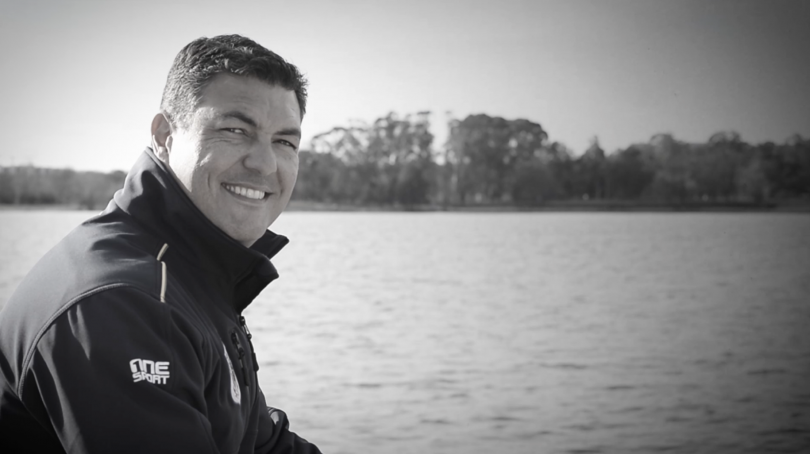
Ben Farinazzo was due to speak at the Menslink Midweeker on 25 August, but it has been postponed until early 2022. Photo: benfarinazzo.com.
To this day, he never knows how his story will be received.
For Ben, it is not about professing to be some sort of mental health expert and telling people what to do. Rather, it is about helping people find their own path.
“There is a power in it in that it gives people permission to share their stories and to be brave enough to talk about the challenges in their lives and speak out for help,” he says.
“But it is also about being grateful for the little things in life – living in Canberra, living in this part of the world, and taking a moment to reach out to people who are doing it hard.”
Ben was scheduled to tell his story at the Menslink Midweeker on Wednesday, 25 August, but his appearance has now been pushed back to February 2022 due to the COVID-19 lockdown.
Working with Menslink CEO Marty Fisk, he continues to help the young men he sees facing challenges such as drugs, homelessness, violence at home or loneliness from a lack of male mentors.
For young men at their tipping point, mentors and community support is greatly needed to guide them through.
For more information about Menslink and how the organisation helps young men in the Canberra community, click here.












